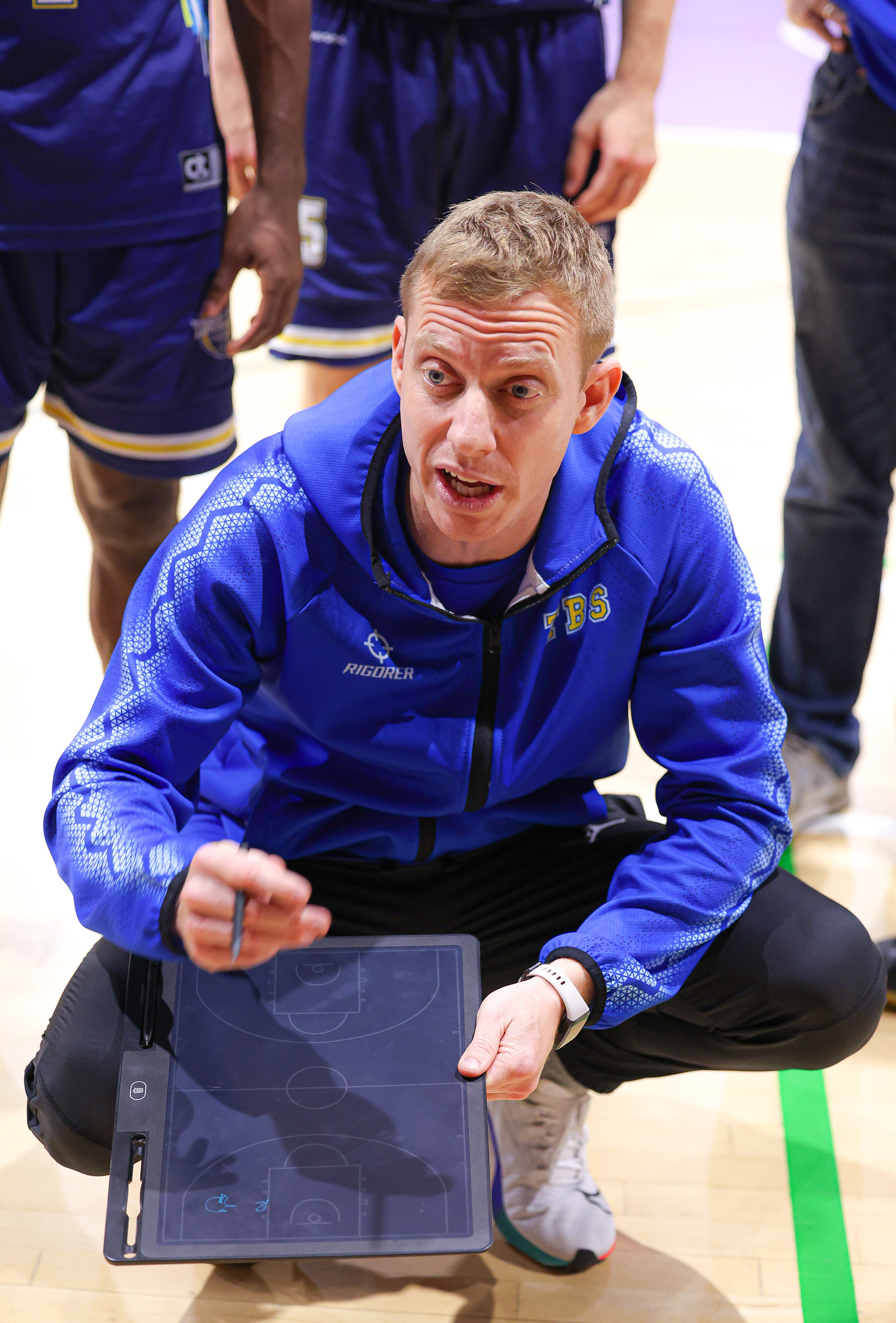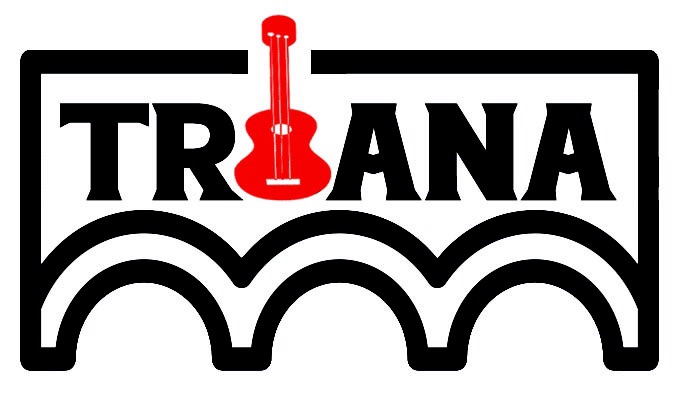
Colo Zuttion: "Spain is at the top of Europe in basketball development for me"
With the end of the FBM seasons, we have more time to take notes and review with the voices of the protagonists. That is why in this edition of the Interview of the Month we have been able to talk with Jeremías, the beloved "Colo" Zuttion, coach of the National Senior that competes in the VIPS League and in addition to the Torrejón Basketball depth chart ofmcoaches. A piece that is very enriched in phrases with the Argentine and where we learn more about his beginnings, professional history and the post-season analysis of the group:
Where does the history of Jeremías Zuttion begin with basketball?
Mine with sports began at Club Talleres de Paraná when I was 4 years old, I do not really know why I joined the club and it became my home, millions of experiences, where my brothers and sisters are. There I played all the formative divisions and at the age of 16 I started working with children teams right there. I was lucky to be able to coach all the categories of my club from the little school with the youngest kids, the smallest ones, to the first division squad. It is my place, where I started and where I will always return.
If we talk about countries with basketball tradition and impact, Argentina has to be at the top of the list. How would you describe what the country has achieved collectively and individually in the last 20 years?
My country is crossed by a great passion for sport, undoubtedly difficult to understand until now. I would tell you that the last 30 years have been a new stage for basketball in Argentina, thanks to many coaches who pushed and convinced of the need for structural changes. I personally believe that in my country there is a great deal of high-quality, well-prepared human resources, crossed by that passion for what is done. Argentina was, is and will be a quarry of talents. In basketball, high quality groups got along together with the possibility of developing sports plans that just coincided with them.
The formative clubs are the structural base of basketball in our country and it is there where the feeling of love for the sport and the sense of belonging are forged, crossed by that internal fire of competition. Although it is true that we lack a sports policy plan, the discipline does what is necessary to stay at the forefront of work. The possibility of migrating to new and better skills for coaches and players makes us visualize and idealize where we should go, adapting it to our context.
Tell us a bit about where you were professionally as a coach in your country:
Just before traveling to Torrejón de Ardoz, I was in Bolivia, where I went to share a work plan with Juan Siemienczuk. Prior to this, I spent four and a half years at the La Unión de Colón club. I got there to be the Club sports coordinator and develop functions as assistant coach in the Argentine League, our second professional division, where I had the opportunity to work with excellent coaches who gave me the opportunity to grow a lot.
After a few years, the club made the decision to bet on the structural development of the club and that measure made the club decide to go down and be demoted to the third category, the Federal League, where they asked me to lead the first team and continue with my duties as coordinator. Colón has a part of me, it gave me many opportunities to grow personally and as a professional. Also Talleres, Club Ciclista Paraná where I was also in charge of the basketball coordination. Along with all this, the possibility of being close to great coaches, always being present on different campuses and the possibility of getting to know other countries behind the orange.
Why come to Spain? And also, what did you think of Spanish basketball from a distance, and what appreciation do you have now that you are getting to know it from the inside?
Arriving in Spain through a WhatsApp message to Flavio Sosa, who was already here (laughs). He had the intention of coming to Spain for personal reasons and I knew he was here, I asked him how he had done it and so on because he was intending to come and his response was: “Do you want to come here? There is a space." So from there he recommended me to the club, I had a 6-minute meeting on the phone, a thousand papers and here I am.
Spain is the reference for basketball development in Europe today for me. It has a top-4 professional league in the world. It has an organization and a plan, without a doubt there are things that could be improved like everything else but it is a reference worldwide.
I knew where I was coming from because I had the opportunity to come before and find out. Today that I am here I am used to working in a new culture. As I told you before, for me the organization, the planning and the objectives to be pursued are pillars and the competition here has it. I agree on some things, I disagree on others, but that is where the interesting thing about this comes from, proposing a different imprint within a reality different from the one
The experience of working at Torrejón Basketball Academy in one or two paragraphs:
Many kilometers traveled and experiences in my personal backpack. The possibility of living, knowing and developing as a person and professional in a different culture. A multicultural experience that will undoubtedly give me many tools for the future.
Your season in command of the national senior, with ups and downs, how would you rate it? In the end, the senior team ends up losing against the eventual champion...
I rate it as very good season. I am very satisfied with the work done, you always want more and compete as high as possible, but reality suits you. A completely new team until the incorporation of the veteran Carlos Abentin at the end of the season we only had Roberto Donaire as the only senior who knows and has played in the competition, because the rest were all U-22 boys, Juniors and foreigners who had to adapt to a new way to play.
In my opinion, a great first phase was made, the second part costed us a little more. We managed to stay up there and qualify for the playoffs 4 game days in advance, which was our goal. The first match against Zentro Basket we played really well, we competed as we wanted to and then against the Olympic District, the best team in the competition, we battled with the tools we had at our disposal.
We had significant injuries for us in important positions, but I think we gave everything, we fought until the end and that is the peace of mind.
What sensations and lessons did the squad leave you thinking about the next 2023-2024 season?
The sensations were very good, one of my objectives was to try to form a work group that would enjoy the season, that is why the boys of the club were prioritized. Take the first team as a reference within the club and a goal to achieve. The older ones are from the club and accompany the boys in this growth, we know where we are and where we are going, I think there are only new and good things to pursue.
You also made your coaching debut in English (laughs). The challenges of managing an “international” team and how to adapt to it to the foreigners?
Personally, it was excellent. I really had the chance to put into practice what I have been studying and for everyone it was a fun novelty. The academy has always had a multiculturalism, where everyone is respected and where we have to come together on the court. That is why the Americans take a slightly longer process of adaptability, since they must readapt their forms to a different context; even more so when there are several within the same team.
Any player you want to highlight during the VIPS league season? Has there been a U-18, a Junior that you have promoted that has surprised you, and why?
I think that highlighting one in particular would be unfair to the rest. As I was saying before, I think a working group was formed, which to a greater or lesser extent enjoyed a season of work. And that I want to highlight and thank the kids for their predisposition to work and the desire to always want to go further.
As for the youth players, what I tried was to make them understand the value of belonging to the first team and the commitment that this entails. This season more than 10 Juniors players participated and even a cadet with the first team.
A piece of advice, and also a phrase from basketball that you want to share with the TBS family:
Keep growing, go for more and better all the time. Evaluating, analyzing what has been done and forcing a better constant is my way of understanding day-to-day life and basketball.







Latest news